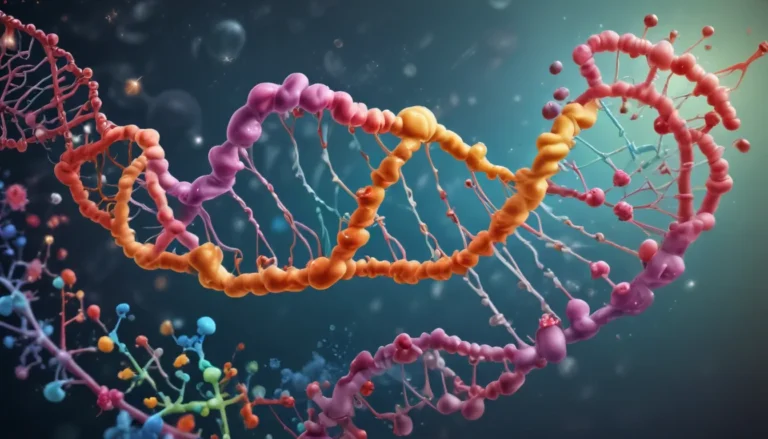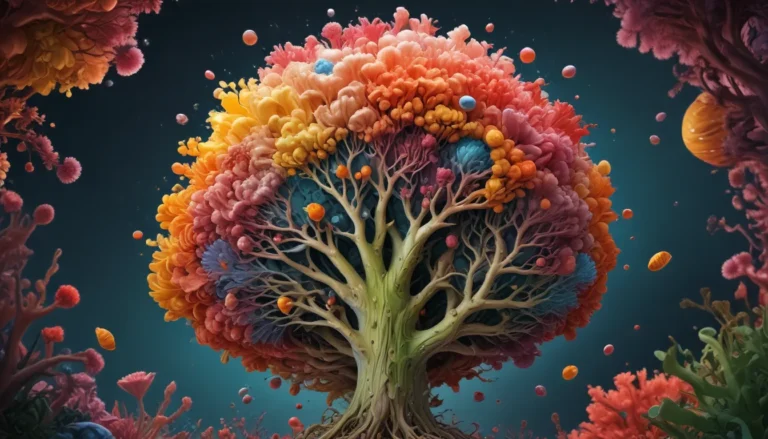A Note About Images: The images used in our articles are for illustration purposes only and may not exactly match the content. They are meant to engage readers, but the text should be relied upon for accurate information.
Organogenesis is a captivating biological phenomenon that unveils the intricate process of organ formation in living organisms. From the development of essential organs such as the heart and lungs to the growth of sensory organs like the eyes and ears, organogenesis plays a pivotal role in defining the anatomy and function of different organisms. In this article, we will delve into 17 astonishing facts about organogenesis, shedding light on the complexity and beauty of this remarkable biological process.
Unraveling the Marvels of Organogenesis
Organogenesis is the miraculous process through which organs are formed in living beings, involving intricate cell interactions and signaling molecules. This process is vital for organ development and carries significant implications for regenerative medicine. Genetic and environmental factors influence organogenesis, and disruptions can result in birth defects. Therefore, understanding this process is key to developing new treatments and approaches in regenerative medicine.
The Intricacies of Organogenesis
-
Organogenesis is the process of organ formation in living organisms. During organogenesis, cells undergo complex and coordinated interactions to develop into functional organs.
-
It begins during early embryonic development. Organogenesis initiates when the embryo is just a few weeks old and continues throughout the gestation period.
-
Major organs are formed through organogenesis. Critical organs such as the heart, lungs, liver, kidneys, and brain all undergo development through this process.
-
Organogenesis involves the differentiation of stem cells into specialized cell types. Stem cells differentiate into specific cell types essential for the structure and function of organs.
-
Developmental abnormalities can occur during organogenesis. Disruptions in the process can lead to congenital malformations and birth defects, emphasizing the importance of proper organogenesis.
The Complex Mechanisms of Organogenesis
-
Organogenesis is regulated by various signaling molecules. Growth factors and transcription factors play a pivotal role in guiding the development of different organs.
-
Organogenesis is a tightly regulated process. Precise timing and spatial organization are essential for the proper formation of organs.
-
Organogenesis requires intricate cellular communication. Cells within developing organs communicate through various signaling pathways to ensure proper development.
-
It involves the growth and shaping of tissues. Tissues expand and undergo morphological changes to form the complex three-dimensional structures of organs.
-
Different organs have distinct patterns of organogenesis. The process of organ formation varies depending on the specific organ and its function.
The Role of Organogenesis in Research and Medicine
-
Regenerative medicine aims to harness the principles of organogenesis. Scientists study organogenesis to develop innovative approaches for tissue engineering and organ transplantation.
-
Genetic factors influence organogenesis. Genes play a critical role in determining the timing and progression of organ development.
-
Environmental factors can impact organogenesis. Exposure to certain substances or conditions during pregnancy can disrupt the normal process of organ formation.
-
Organogenesis is a fascinating area of research. Scientists continuously uncover new insights into the molecular and cellular mechanisms underlying organ development.
-
Organogenesis is essential for the survival and function of organisms. Proper development of organs is crucial for carrying out vital physiological processes.
-
The study of organogenesis has significant implications for regenerative medicine. Understanding the process of organ formation can guide the development of innovative approaches to treat organ damage and disease.
The Marvels of Life Unveiled Through Organogenesis
- Conclusion: Organogenesis is a fascinating biological process that plays a vital role in the development of organisms. It involves intricate cellular and molecular events that lead to the formation of complex structures like the human heart, brain, and lungs. Understanding the mechanisms behind organogenesis not only fuels scientific curiosity but also holds great potential for regenerative medicine and tissue engineering.
Exploring the Extraordinary World of Hedghog Signaling
Organogenesis introduces us to the wonders of life and the intricacies of our own existence. If you found these facts about organogenesis captivating, why not delve into the extraordinary world of hedgehog signaling? This pathway plays a crucial role in embryonic development and tissue regeneration, offering fascinating insights into the complexities of life.
FAQs: Unveiling the Mysteries of Organogenesis
-
What is organogenesis? Organogenesis is the process by which organs develop and form during embryonic development, involving intricate cellular events and molecular signaling.
-
How does organogenesis occur? Organogenesis occurs through a series of steps involving cell differentiation, migration, and morphogenesis, guided by cellular interactions, genetic programs, and signaling pathways.
-
What are some examples of organs formed during organogenesis? Examples of organs formed during organogenesis include the heart, lungs, brain, liver, kidneys, and reproductive organs, each playing vital roles in organism functionality.
-
Can organogenesis be studied in adults? While primarily occurring during embryonic development, certain forms of organogenesis can occur in adult organisms. For instance, the liver has regenerative capabilities.
-
What is the significance of studying organogenesis? Studying organogenesis provides insights into the mechanisms governing organ formation, with implications for birth defects, tissue regeneration, and therapeutic approaches for diseases.
-
Are there disorders or conditions related to organogenesis? Disruptions in organogenesis can lead to various congenital disorders or birth defects, affecting the structure or function of organs.
In Conclusion
Organogenesis is a captivating journey into the marvels of life, unveiling the intricacies of organ formation and development. Delving into the world of organogenesis not only broadens our understanding of biological processes but also paves the way for innovative advancements in regenerative medicine and tissue engineering. Embrace the wonders of organogenesis and explore the endless possibilities that this fascinating field has to offer.






